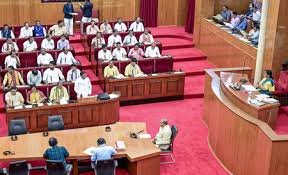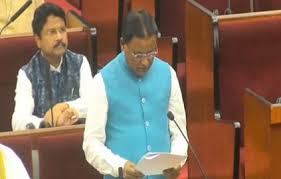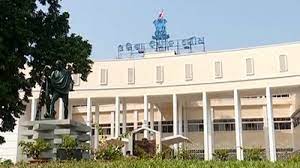Bhubaneswar: The recent Odisha Assembly session has sparked widespread dissatisfaction and debate among both political leaders and citizens. Despite being a vital forum for addressing public issues, the session was adjourned prematurely, leading to accusations against the ruling BJD government of stifling democracy.
The session, scheduled for 28 days, was cut short after only 12 days. Critics argue that this practice undermines the Assembly’s purpose, as numerous issues affecting the state remain unaddressed. Conscious citizens have questioned the relevance of preparing a 60-day legislative calendar when it is rarely adhered to. They view this as a mere pretense, detracting from the democratic process.
The BJP and Congress have vocally criticized the BJD for its failure to conduct longer and more substantive sessions. BJP leaders, who had previously accused the Congress-led BJ government of similar practices, now find themselves targeted for following the same path. Outside the Assembly, BJP leaders voiced their discontent before the media and even under Mahatma Gandhi’s statue, calling attention to the lack of commitment from the ruling party. Congress leaders have joined the criticism, denouncing the inefficiencies of both the BJP and BJD.
Interestingly, during the Congress and BJD government, BJP leaders frequently condemned premature adjournments. Now that the BJP has followed the same approach, BJD leaders have remained notably silent, suggesting a tacit approval of this undemocratic trend. This shift highlights a pattern of convenience-driven hypocrisy among Odisha’s major political parties.
While the Legislative Procedure Act mandates a minimum of 60 sitting days annually, the BJD government has justified the short sessions on legal grounds, citing a lack of government bills. However, this justification rings hollow when considering the pressing issues in the state. Critics argue that while legislators are quick to agree on matters like salaries and pensions, they fail to focus on solutions for significant public concerns, such as governance inefficiencies and developmental challenges.


Despite its brevity, the session witnessed heated debates between the ruling party and the opposition. Key discussions revolved around governance failures and inefficiencies over the BJD’s 24-year tenure. Congress members targeted both the BJP and BJD, asserting their own relevance as an alternative voice.
The performance of first-time MLAs stood out, with leaders like Aswini Sarangi, Manas Dutta, Tankadhar Tripathi, Upasana Mohapatra, Irashish Acharya and Babu Singh from the BJP demonstrating effective participation and poise. On the opposition side BJD MLA Gautambuddha Das, Congress MLA Sofia Findos and Ashok Das delivered strong critiques, challenging the government with sharp arguments. Their efforts were noted as examples of vibrant legislative debate.
Opposition leader Naveen Patnaik’s regular attendance in this session marked a departure from his previous absence. However, his lack of active participation raised questions. While present, he chose to remain silent, refraining from engaging in any critical discussions, which disappointed many observers expecting a more proactive approach.
The session’s premature end and lack of conclusive resolutions underscore a troubling trend in Odisha’s legislative process. The Assembly, a cornerstone of democracy, risks losing its credibility if meaningful discussions and resolutions are consistently sidelined. Both the government and the opposition need to prioritize constructive engagement over political convenience, ensuring the Assembly remains a platform for addressing the real issues facing Odisha’s citizens.



